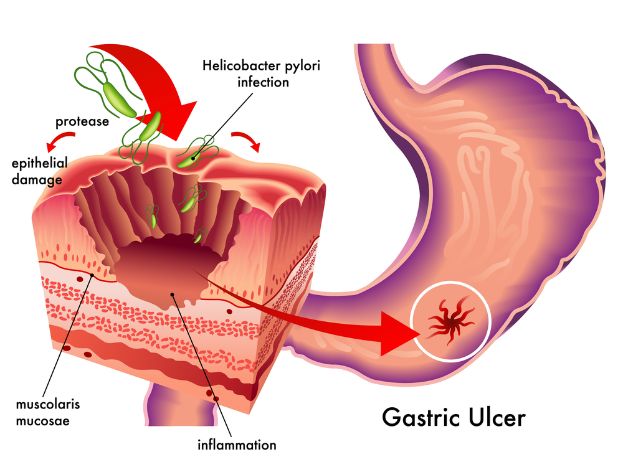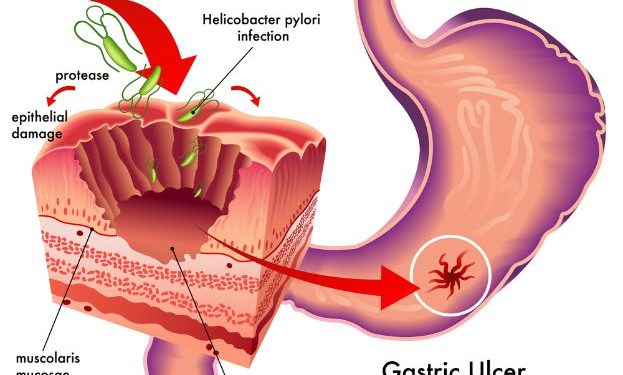cause pain, loss of appetite, nausea, vomiting, weight loss and bloating. It is a common problem that requires treatment to prevent it from becoming worse and to avoid complications such as gastrointestinal bleeding, peptic ulcers, and cancer of the stomach or duodenum.
Diagnosis of an ulcer depends on symptoms and laboratory tests. A doctor may do a gastroscopy or endoscopy to look at the lining of your esophagus, stomach and first part of your small intestine with a special camera (endoscope) that is inserted down your throat. The doctor also might test your stool for a certain bacteria called H. pylori, which can cause ulcers and stomach cancer.
The most common symptom of a gastric ulcer is pain in the upper abdomen. It may be sharp, hot, burning, sour, or dull. This pain can occur when you eat food or after a meal and it is often felt in the back as well.
Several other symptoms can also indicate a gastric ulcer: poor appetite, nausea, vomiting, weight loss, and feeling tired or weak. Tarry or sticky stools are another warning sign of an ulcer and can be caused by damage to the blood vessels in your stomach or intestine.
Treatment is usually a combination of medications. Antibiotics kill the bacteria that causes the ulcer, antacids relieve pain and acid blockers help reduce the amount of stomach acid produced by your body. Other treatments include a medication that protects the lining of your stomach against damage by acid, and a proton pump inhibitor that completely blocks the production of stomach acids.

Diet plays an important role in the treatment of a gastric ulcer. The patient should avoid spicy, fatty or acidic foods and drink lots of water. Patients should also eat lots of fruits and vegetables, fresh meat and fish, whole grains nuts and legumes.
It is also recommended that the patient does not smoke, as smoking may delay the healing process of a gastric ulcer or cause it to recur. A diet that is high in protein and containing little fat and sugar is best for patients with ulcers.
The diet should also include plenty of water, tea, milk, antacids and fruit juice to replace lost fluids and minerals. The patient should not have too much caffeine, alcohol, chocolate, and fried foods as these increase the risk of an ulcer.
Lifestyle Changes
The most effective ways to prevent a gastric ulcer are to eat a healthy, balanced diet that includes lots of water and fiber-rich foods such as fruits, vegetables, and whole grain breads and cereals. It is especially important to eat plenty of protein-rich foods, such as meat, eggs, and beans.
In addition to a healthy diet, many people can reduce their acid levels by eating smaller meals more frequently. For example, instead of eating three large meals in a day, eat five or six smaller ones.









